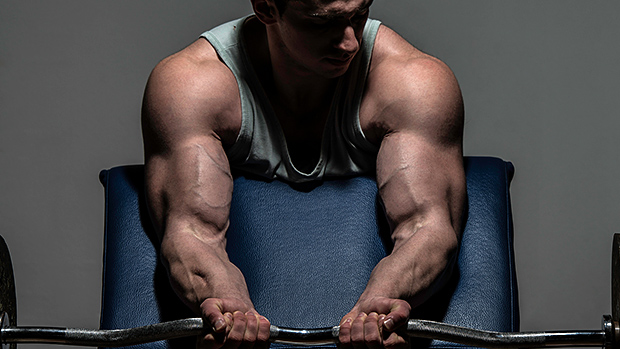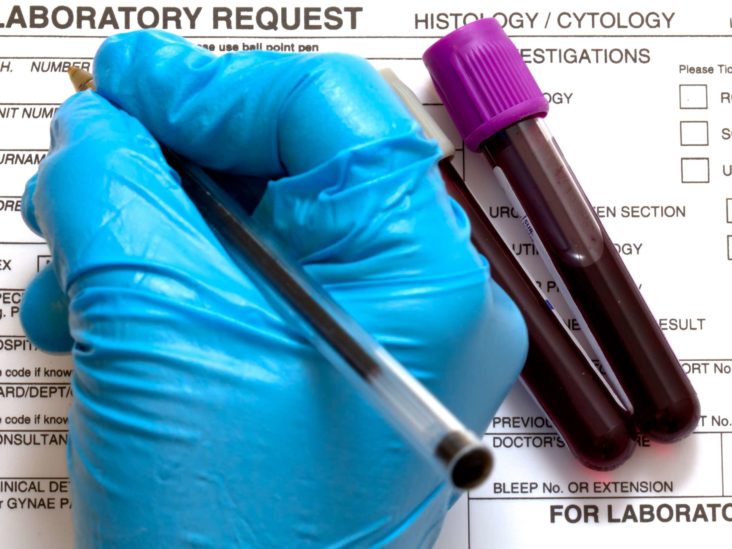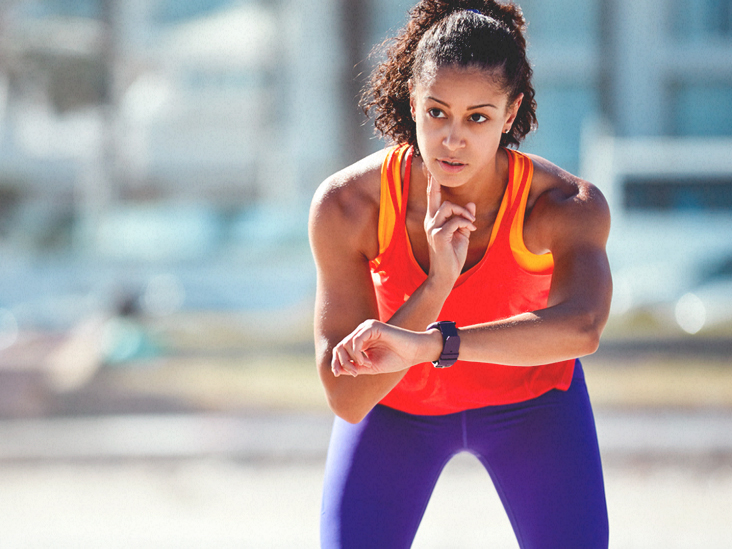Note:-
Our articles should be used for informational and educational purposes only and are not intended to be taken as medical advice. If you’re concerned, consult a health professional before taking dietary supplements or introducing any major changes to your diet.
The Bulking Diet
Being a hardgainer is hard, right? No matter how hard you train, you’re still ‘skinny’. While it might seem easy for some to get the perfect physique, for most, a lot of hard work and know-how goes into achieving it. That’s why we’re going to teach you how to begin a bulking-diet.
Bulking Diet’s Macro-Breakdown: How Many Calories Should I Eat?
If you’re a hard gainer, you need to eat a little more than your average Joe. Research has shown that a good starting point for hardgainers would be to aim to consume approximately 22 calories per pound of body weight per day. For example, if you weigh 150lbs, then you would aim to consume around 3300 calories per day.
However, remember that nutrition is not a “one-size-fits-all” concept.
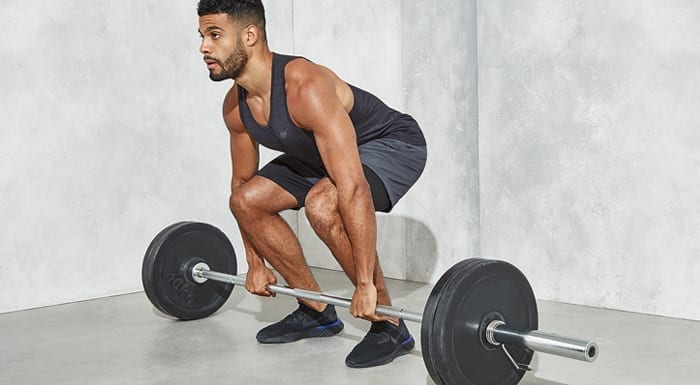
Each person’s metabolism is slightly different, and although 3000 calories for one individual weighing 150lbs is a starting guideline, this is a trial and error process. The number may have to be increased or decreased, depending on how your body reacts, so it’s good to keep a log of your caloric intake and your weight to see what works for you.
How Much Carbs, Protein And Fat?
So how much of the 3000 calories should be made up of carbohydrates, fat and protein? You might think that 90% of your intake needs to be made up of huge steaks and raw eggs, but think again. Research shows that the ideal macronutrient ratio should be broken down into a ratio of approximately:
Protein: ~25%
Carbohydrates: ~40%
Fat: ~35%
Although the above ratio is commonly used by people who struggle to put on weight, remember, it’s just a guideline. All bodies are different, and it’s about finding the right ratio for your body. If you eat like this for around two weeks and see no weight gain, you should increase your calories by about 200 calories per day and see if this helps. It’s all about the time and tuning to meet your individual needs.
Ensure you don’t skimp on the protein, either. Studies show that protein is an extremely important macronutrient for hardgainers (and non-hardgainers, too), and should therefore contribute to at least 20% of your food intake every day.
Now, let’s see just what the bulking diet looks like.
The Hardgainer Bulking Diet Plan
A lot of people who struggle to gain weight believe that they can gorge on fast food to rack up their calorie intake. But, unfortunately, gaining weight fast and in excessive amounts can take its toll on our bodies, and that brings several different health risks too. Gaining weight too fast can accelerate fat storage, too, causing changes in insulin sensitivity and the intracellular signalling required for muscle-protein synthesis, which can make muscle growth even harder.
For some people, eating is a pleasure, however, for others, it’s a chore. If you’re someone who gets full very easily, you need to consume more energy-dense food with large amounts of calories, rather than filling up on low-calorie, high-fiber foods. It’s important to eat a lot of fruit and vegetables, as vitamins and minerals are essential to our health and well-being – just eat them in addition to the energy-dense foods rather than instead of them.
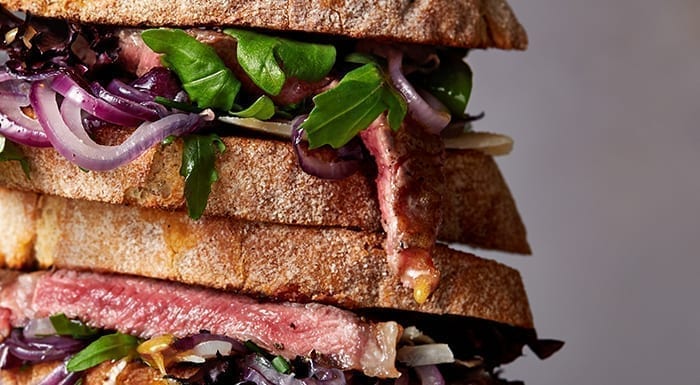
A Typical Day Of Food For A Hardgainer Bulking Diet
This diet plan gives you an idea of how much food you should be eating and when. You might choose to train in the morning instead, but overall, it’s important to make sure you get a range of nutrients and you’re eating at least six times per day.
| Meal time | Example meal | Macronutrients |
| Meal 1 – 7am | 1 cup instant oats 1 scoop Whey Protein 4 whole eggs & 2 egg whites | 663Kal 55g carbs 63g protein 24g fat |
| Meal 2 – 9:30am | 1 scoop Hardgainer 5 fl oz of whole milk or water | 402Kcal 28.5g carbs 57g protein 16.2g fat |
| Meal 3 – 12:30pm | 1 medium baked sweet potato 1 baked salmon fillet 2 tbsp sour cream 2 tbsp seasame seeds Handful of spinach 10 fl oz whole milk (as a drink) | 719Kcal 53g carbs 48g protein 35g fat |
| Meal 4 – 3:30pm | 1/2 cup geek yogurt 1 scoop Impact Whey Protein 1 banana 8 whole almonds | 432Kcal 109g carbs 37.5g protein 10.7g fat |
| Meal 5 – 6:30pm | 1 chicken breast 1/2 cooked onion 1/2 cooked bell pepper 1 cup cooked rice 4 tbsp salsa 2 tbsp sour cream 1/2 can mixed beans | 724Kcal 109g carbs 45g protein 10g fat |
| Meal 6 – 9:30pm | 1 scoop casein protein 1 tbsp natural peanut butterMix with either: 7 fl oz whole milk, or 1/2 cup greek yogurt | 324Kcal 128g carbs 34g protein 14.5g fat |
Essential Hardgaining Foods For A Bulking Diet
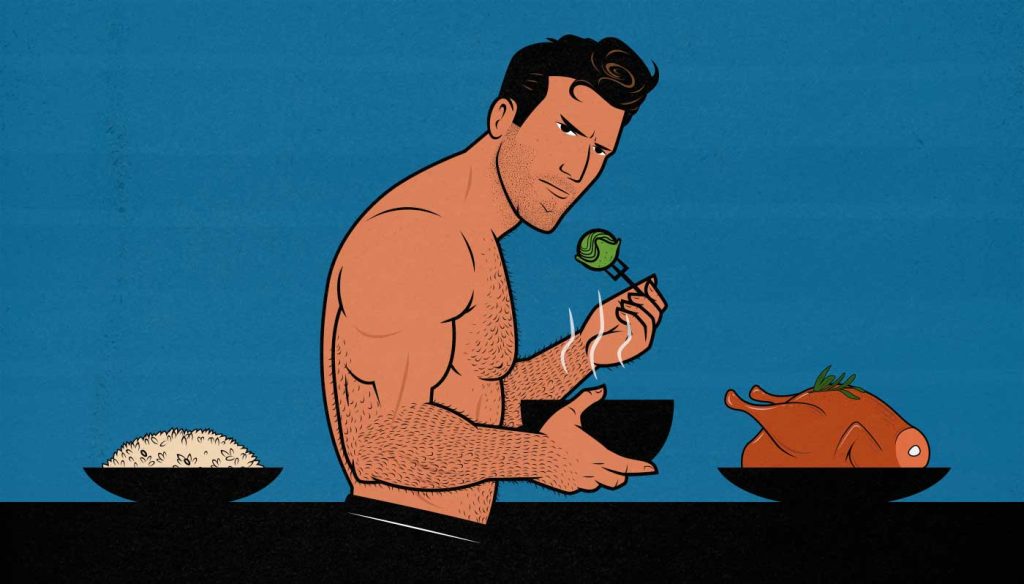
To ensure you reach your calorie targets, keep track of your calorie intake. You can use calorie-counting apps or simply log it in a notepad. Ensure you know what you’re going to eat and when. You can prepare your meals the night before or even a few days in advance, making sure you include the following top-hardgaining foods. Don’t forget to factor in and exercise you do as this will deplete your daily caloric intake.
1. Protein Shakes
You’re going to be eating a fair amount of protein, but having steaks all week long can get boring. That’s where protein shakes come in as a tasty, convenient way to get all the protein you need. Products such as Mass Gainers contain over 300 calories per serving, and plenty of carbs and protein, so they make the perfect quick snack or meal replacement.
If you prefer making your own shakes, ensure you add an adequate amount of protein, carbohydrates and fat. This might involve getting a good whey protein or protein blend such as total protein, a good source of carbohydrates such as maltodextrin, and also a good supply of healthy fats, such as peanut butter.
2. Lean Meat & Fish
To build muscle, you need to eat protein. Lean meat and fish are the best sources of protein with all the essential amino acids your muscles require to repair and grow. If you’re vegan, make sure you eat a good variety of plant-based protein sources to ensure you’re getting the full spectrum of amino acids.
3. Nuts
Start getting nuts about nuts! Nuts are energy-dense, which means they’re full of calories. They also provide a good source of healthy mono- and polyunsaturated fats, both of which are essential for a hardgainer. So snack away on nuts (unless you’re allergic of course) to help boost your calorie intake.
4. Oats
Oats are a good source of carbohydrates, that will add extra calories to your diet without making you feel as if you’re about to burst. Oats are perfect to be enjoyed in the morning with full-fat milk mixed with protein powder, or in a post-workout protein shake.
5. Eggs
Eggs are a good source of healthy fat and protein. Enjoy a healthy omelette, poached, boiled or scrambled eggs for breakfast of lunch for a tasty, protein-rich meal.
6. Salmon & Other Oily Fish
Salmon and other oily fish like sardines are recommended to be consumed at least twice per week. Eating salmon will provide you with a good source of essential omega-3 fatty acids, as well as a good source of protein.
7. Coconut & Olive Oil
To gain muscle, you need a good source of healthy fat. Fats from olive oil and coconut oil are a perfect way to get healthy fats in your diet and can be easily added to salads and when cooking food.
8. Sweet Potato
Sweet potatoes are a great source of carbohydrates – perfect for after a workout to restore your glycogen levels.
9. Dried Fruit
Dried fruit is different to fresh fruit, whereby it’s actually very energy-dense. Dried fruit not only gives you a good source of vitamins, minerals and fiber, but it can give you some energy-boosting sugar that’s perfect for a pre-workout snack. What’s more, enjoying dried fruit as a snack is likely to make you less full than regular fruit.
